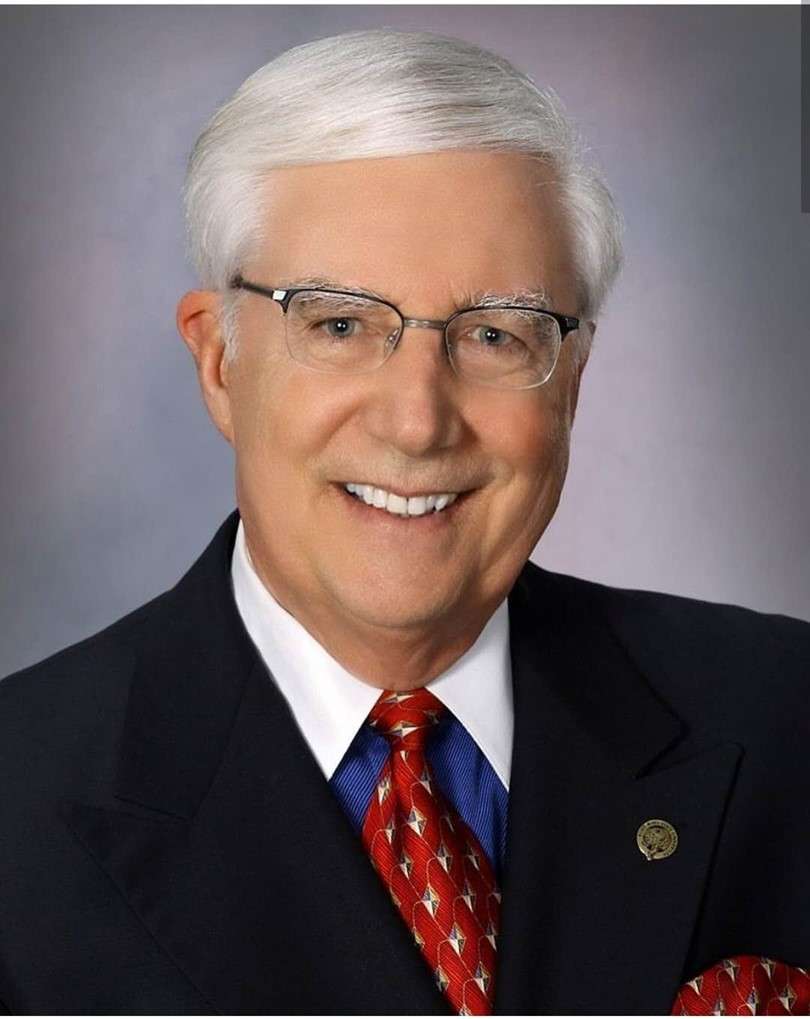
Submitted by Hammond campaign for state representative
Hays Medical Center, Ellis County citizens and their economy have lost in terms of health care and money, said Ed Hammond, Democratic candidate for the Kansas House, at a news conference this morning.
“Patients, HaysMed and the economy of the 111th District have all suffered because of the state’s failure to expand KanCare/Medicaid,” said Hammond. “Our current representative has chosen not to advocate for expansion and in fact has actively participated in blocking it. The time is now to have Medicaid expansion.”
Five years ago, a bi-partisan majority in the Kansas Legislature passed expansion, but then-Gov. Sam Brownback vetoed it. The Legislature has not been able to overcome the obstacles to passage since.
“And our current representative has been one of the obstacles,” said Hammond.
Hammond cited a recent survey from the Alliance for a Healthy Kansas that found 87 percent of Kansans support expansion. An estimated 165,000 people in Kansas would benefit from expanded coverage — people who are currently uninsured or who would be eligible for more health care coverage.
Another survey, an economic study conducted by Kansas State University economist Dr. John Leatherman, indicated that failure to expand Medicare has cost the state $70 million per year in additional tax revenue, direct and indirect.
Kansas is one of only a dozen states that have not accepted the federal Medicaid expansion money, he said. More Republican governors than Democratic governors have presided over expansion, and those include Mike Pence, governor of Indiana before becoming vice president.
All states surrounding Kansas have expanded Medicaid, and that includes three of the reddest states in the country: Missouri, Oklahoma and Nebraska.
Hammond emphasized three reasons why he is advocating for Medicaid expansion. The first is health care.
“The first reason I feel so strongly about this issue is because it improves the health of 165,000 Kansans,” he said. These people are not getting services or are getting services and the providers are having to write off the cost, he said.
Under current eligibility requirements, an uninsured parent with two children would have to earn less than $4 an hour, or no more than $8,500 a year, to qualify. He also pointed out that, contrary to a myth perpetrated by opponents of expansion, only U.S. citizens are covered.
“My opponent has decided not to advocate for our citizens, and the time is now,” said Hammond.
The second reason we need expansion is jobs.
“Expansion creates jobs,” he said. “We will have to hire more doctors, nurses, nurses’ aides and hospital staff in order to meet additional demand.”
Statewide, experts estimate an additional 3,800 jobs will be created by expansion, and hospitals and health care facilities need additional resources to deal with the pressures of inflation.
“As with health care for people, my opponent has decided not to advocate for jobs,” said Hammond, “and with growing inflation, the time is now.”
Hammond said the third reason for expanding KanCare/Medicaid is, “It stimulates the economy.”
“We know that since 2014, when Kansas could have expanded eligibility, the state has lost $5.7 billion,” he said.
The 10 percent state share can be taken from budgets that can be reduced because they won’t have to include Medicaid-covered health care costs in their budgets. The largest share would come from prisoner inpatient care, MediKan savings, blind and disability supplement income, and medical needy spenddown.
Health care for inmates is one of the largest savings. Most prisoners would qualify for expansion.
Economists who have studied the effects of expansion in other states agree that it is either revenue neutral or revenue positive. Expansion costs the state nothing or results in additional revenue.
“Kansas has been missing the benefit of these federal funds, and our citizens have been missing the opportunity to be covered for health care,” he said. HaysMed has lost $5.1 million a year, and the First Care Clinic and other health care providers in Ellis County have lost $2.5 million a year.
On top of that, he said, the lack of expansion has cost HaysMed in an even larger way. People without medical coverage, or who have insufficient medical coverage, don’t use hospital services. The result is that HaysMed does not serve enough Medicaid patients to qualify for $10 million a year in prescription drug rebates.
“This has further disadvantaged our economy and cost people 40 percent more in prescription drug costs through the hospital,” he said.
This results in a competitive disadvantage with other cities, such as Garden City, whose hospital does have enough Medicaid patients to qualify for the benefit.
This benefit applies to Medicaid patients and veterans, and the lack of Medicaid expansion meant that, on average, these people pay about 40-percent more for prescription drugs.
In round numbers, patients, HaysMed and the community miss out on $17.5 million in additional revenue. The amount of downstream economic impact is estimated at three to seven times more than the direct revenue as the money circulates in the local economy.
“Over the four years that my opponent has been in office, she has been willing to pass up $70 million in direct spending. We have lost the advantage of this money being in our economy,” said Hammond.
“Once again, my opponent has decided not to stand up for her city, her county and her district. I will,” he said, “and the time is now for someone to advocate for the 111th District.”






